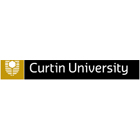Master of Commerce (Information Systems and Technology)
Master of Commerce (Information Systems and Technology)
This major is designed to provide knowledge and skills to those either wishing to become information systems and technology professionals or those seeking to increase their knowledge in the management and strategic application of information systems and technology in a competitive, intelligent global business environment. It combines theory, research and…
Categories
COURSE DESCRIPTION
This major is designed to provide knowledge and skills to those either wishing to become information systems and technology professionals or those seeking to increase their knowledge in the management and strategic application of information systems and technology in a competitive, intelligent global business environment.
It combines theory, research and practice incorporating a range of concepts, methodologies and technologies relating to information systems, information technology and computer security, including database systems design, systems analysis and managing technological infrastructure.
In your second year, you will specialise in one of the following areas of strong industry growth:
Information Security
Governance and Sustainability
Data Analytics and Visualisation.
What jobs can the Information Systems and Technology Major (MCom) lead to?
Careers
Senior system analyst
Information security manager
Security analyst
Business data manager
Business analyst
Governance officer
Cyber security professional
Industries
Banking
Business and management
Government
Health care
Resources and renewables
Technology
What you’ll learn
Recommend and manage innovative uses of technology and data driven approaches to improve business and societal outcomes locally and globally
Evaluate the impact of existing and emerging information and communications technologies on stakeholders, including cultural, ethical, inclusivity, privacy, security and sustainability considerations
Engage stakeholders and access, evaluate and synthesize information from multiple sources to identify business requirements, Apply systems theory and systems development techniques to design and develop information systems appropriate to a range of business organisations and to participate effectively in a global environment
Effectively communicate information and system business cases, requirements, policies and procedures, strategies, system designs, specifications and implementation details to a professional standard,
REQUIREMENTS
Overseas applicants require a qualification that is recognised by tertiary admissions authorities in Australia and considered equivalent to the qualifications listed for entry to this course.
Certificate in Advanced English (CAE): Grade C; and Pearson Test of English Academic: 60. IELTS Academic (International English Language Testing System): Writing, Speaking, Reading, and Listening: 6.0; Overall band score: 6.5; TOEFL (Test of English as a Foreign Language): 79 Overall; Reading 13 Listening 13 Speaking 18 Writing 21.
EDUCATIONAL INSTITUTION
Curtin University is Western Australia’s largest and most culturally diverse university with Australia’s third largest international student population. Around 60,000 students from more than 130 countries study a Curtin degree, at locations including Perth, Margaret River, Kalgoorlie, Sydney, Malaysia and Singapore. Our cultural diversity adds a rich and valuable dimension to the campus atmosphere, preparing all graduates to live and work effectively in an increasingly global environment. We offer a range of industry-aligned undergraduate and postgraduate courses in business, humanities, health, engineering and related sciences. We also have a long-standing focus on Aboriginal and Torres Strait Islander education and culture, supported by our Centre for Aboriginal Studies.Curtin is widely recognised for its practical research that is focused on solving timely, real-world problems. In recent years our research activity has grown significantly, driving our rapid rise up the international university rankings.As a university that never settles, we will continue to develop existing partnerships and establish new ones in areas relevant to our research and teaching.




